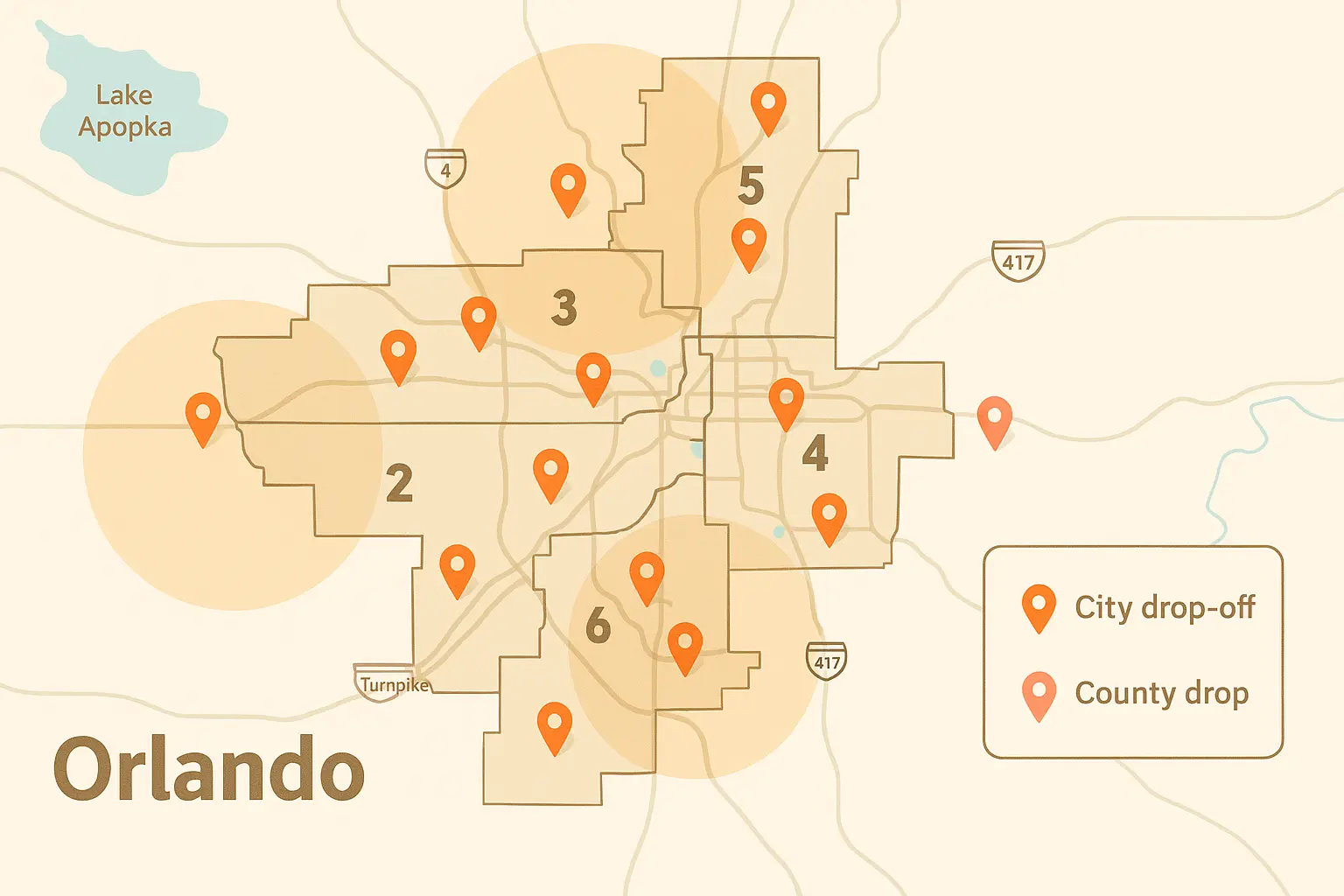Fast Answer: 19 Household Drop Off Points City Wide
If you live in Orlando, you now have nineteen free, public places to recycle kitchen grease. The City’s Grease Fighter network maintains 17 neighborhood drop off barrels scattered across the six commission districts, while Orange County Utilities runs two Household Hazardous Waste (HHW) sites that also accept cooking oil. Together they form the region’s easiest way to keep fats, oils, and grease (FOG) out of sewer lines and landfills. Bring oil cooled to room temperature, sealed in a shatter-proof jug (≤ 2 gal for city sites); attendants at county facilities will take larger household quantities.
Inside Orlando’s Grease Fighter Network: 17 Neighborhood Centers
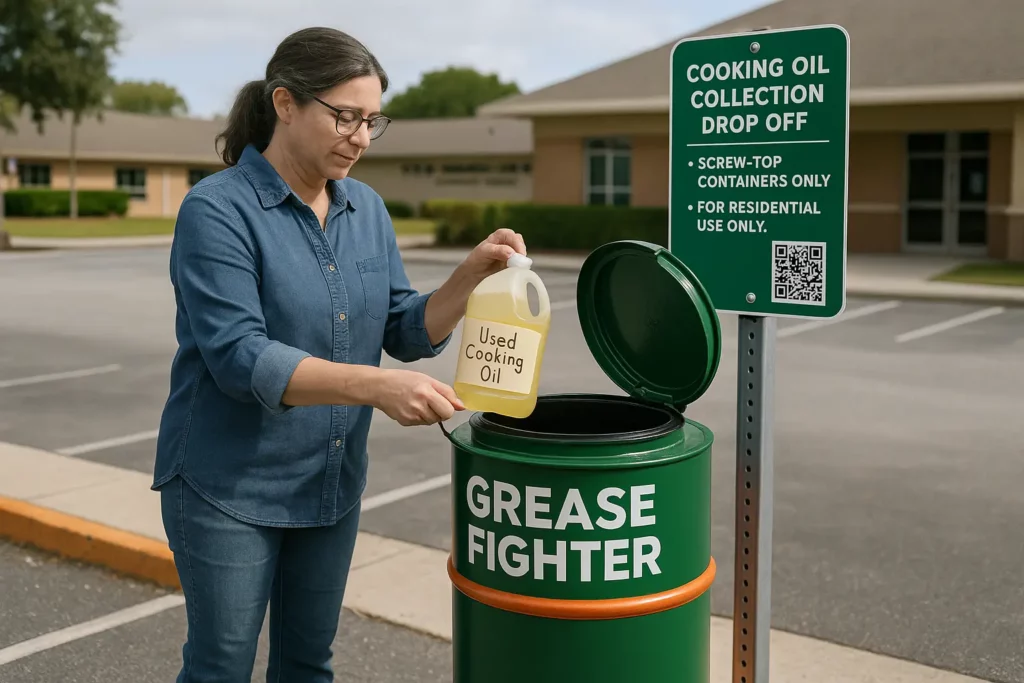
Since 2010 the City of Orlando has quietly expanded its Grease Fighter program from a pilot to 17 year round collection barrels. They sit in the parking lots of high-traffic community hubs: think Dover Shores Neighborhood Center (Conway), Engelwood Neighborhood Center (East Orlando), Lake Fairview Park (North), and Northwest Community Center just off WD Judge Road.
Every district has at least two sites, so no resident drives more than fifteen minutes. Each barrel is fitted with a screw top hatch; you simply drop the full jug, scan the posted QR code to request a fresh one, and you’re done. The City’s Water Reclamation crew hauls the oil to a partner biodiesel processor every week, diverting thousands of gallons from drains annually.
County Run Alternatives: Young Pine & Porter HHW Centers
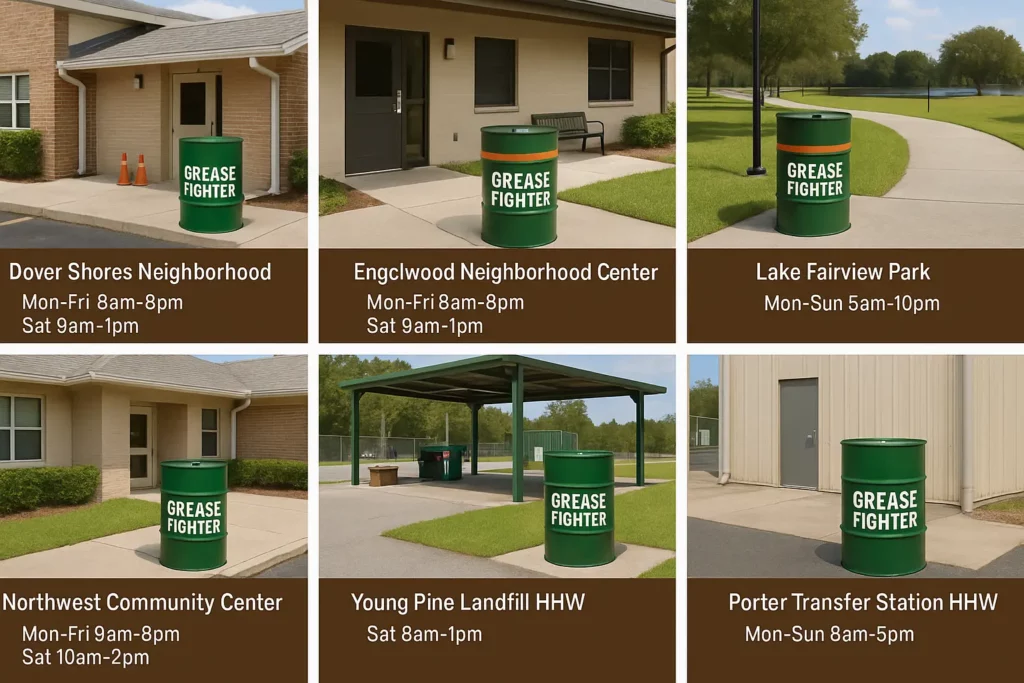
Need weekend hours or have paint cans to ditch too? Orange County’s HHW program lets any resident unload used cooking oil alongside paint, pesticides, and e waste. The Young Pine Landfill (5901 Young Pine Rd., 32829) and the Porter Transfer Station (1326 Good Homes Rd., 32818) are open Monday through Saturday, 8 a.m. to 5 p.m.
Pull into the HHW lane, pop your trunk, and staff will empty containers for you: no appointment, no fee. While there’s no strict gallon limit for grease, keeping volumes under five assures faster service. These two centers help households outside city limits or in unincorporated neighborhoods recycle responsibly without hunting for a private vendor.
Commercial Volumes: When Restaurants Need a Pickup
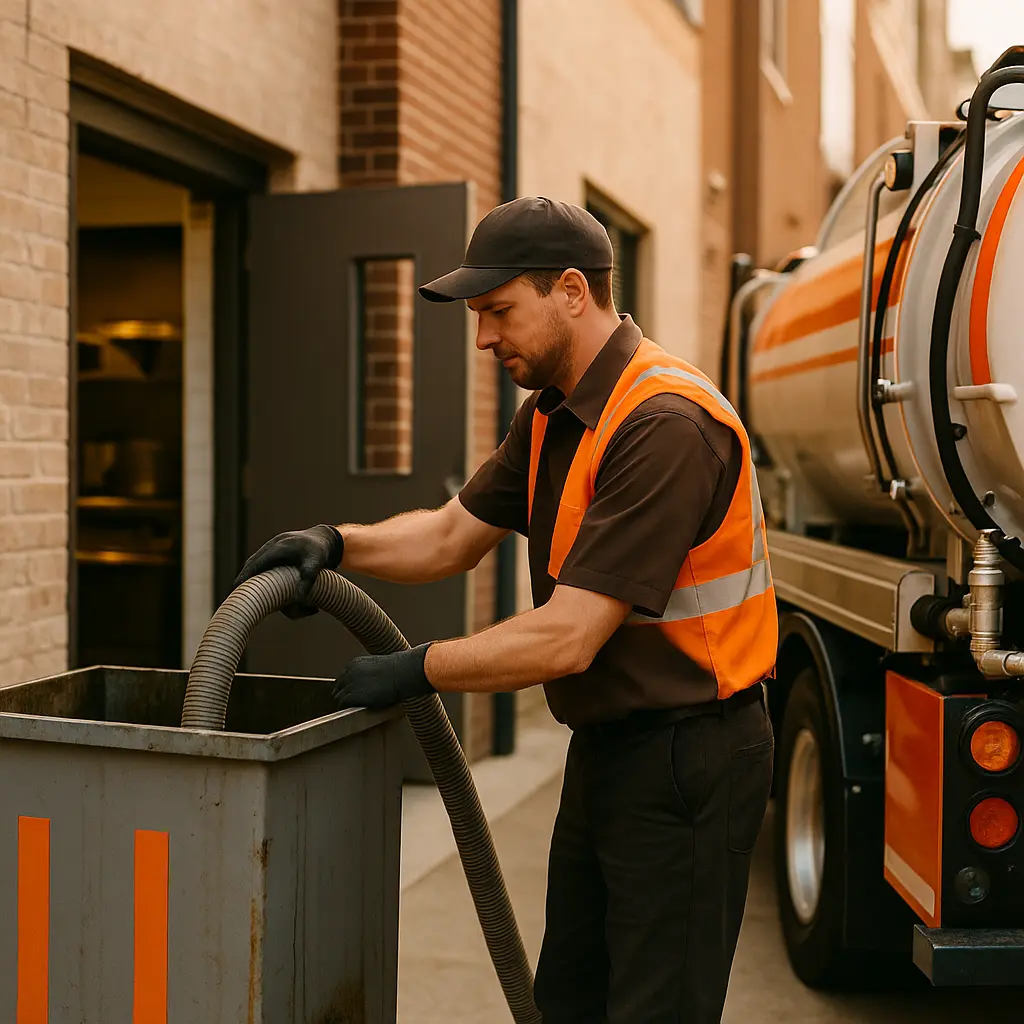
Households aren’t the only ones embracing biofuel economics. Commercial kitchens generating more than 30 gallons a month should arrange scheduled pickup rather than using public barrels. Grease Connections offers sealed tank systems, 24 hour spill response, and grease trap service throughout the metro area.
Grease Connections is headquartered in Orlando, provides rebate checks for clean oil and same day emergency stops, making it popular with food trucks and ghost kitchens. Both firms process Orlando’s bulk oil into renewable diesel that powers regional trucking fleets, closing the waste-to-fuel loop without burdening city infrastructure.
Prep Your Oil Like a Pro
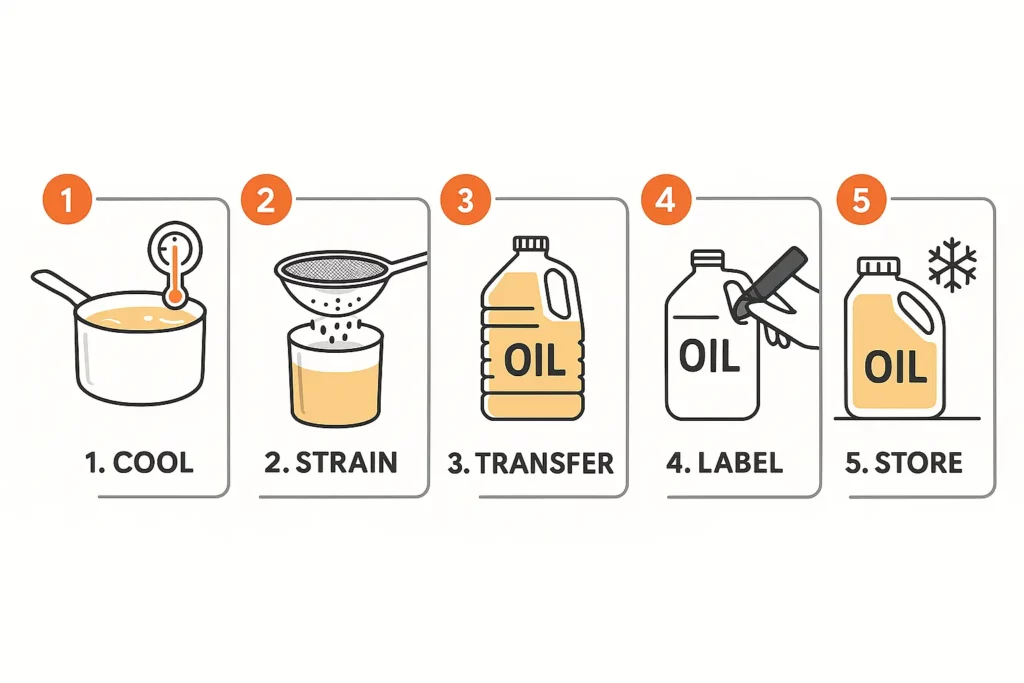
Good recycling starts before you leave the kitchen. Let oil cool until you can touch the pot, then strain out crumbs with a metal sieve: solids cause rancid odors in collection barrels. Transfer the liquid into a clean plastic milk jug or the free orange Grease Fighter canister the City hands out.
Screw the cap tight, wipe off drips, and label it “Used Cooking Oil” with a marker. Store the jug in a shaded spot; temperature swings accelerate spoilage and may pop flimsy lids. When the container is two thirds full, plan your drop off run: holding oil longer invites rodents and smells.
Why Your Old Fry Oil Fuels Tomorrow’s Buses
Orlando converts resident grease into ASTM certified biodiesel that now blends into the City’s garbage truck fleet and Lynx buses. Each gallon of reclaimed oil yields roughly 0.9 gallons of B100 biodiesel and prevents about 16 pounds of carbon dioxide emissions versus petroleum diesel. Beyond climate benefits, diverting FOG saves Orlando’s sewer system an estimated $200,000 a year in pipe blockage repairs, a cost that would otherwise appear on your utility bill. By taking a five minute drop off detour, you’re literally fueling cleaner air and lower taxes.

